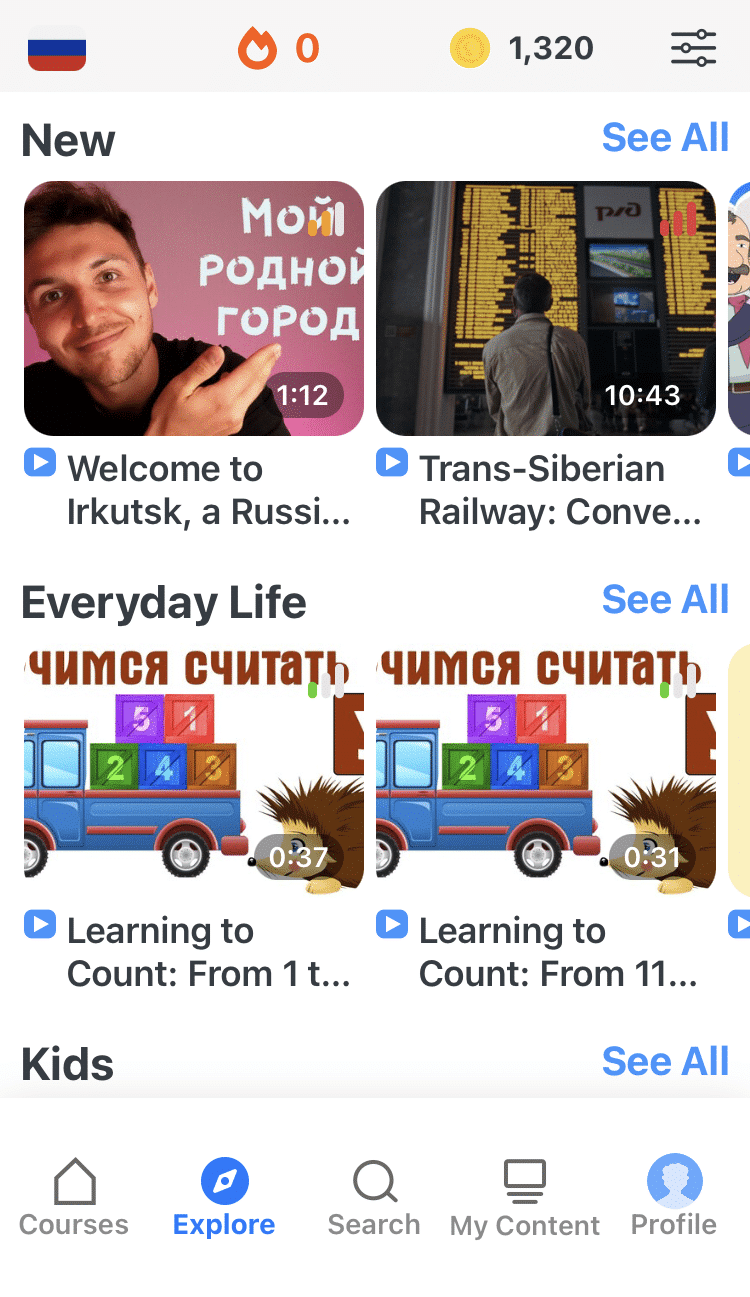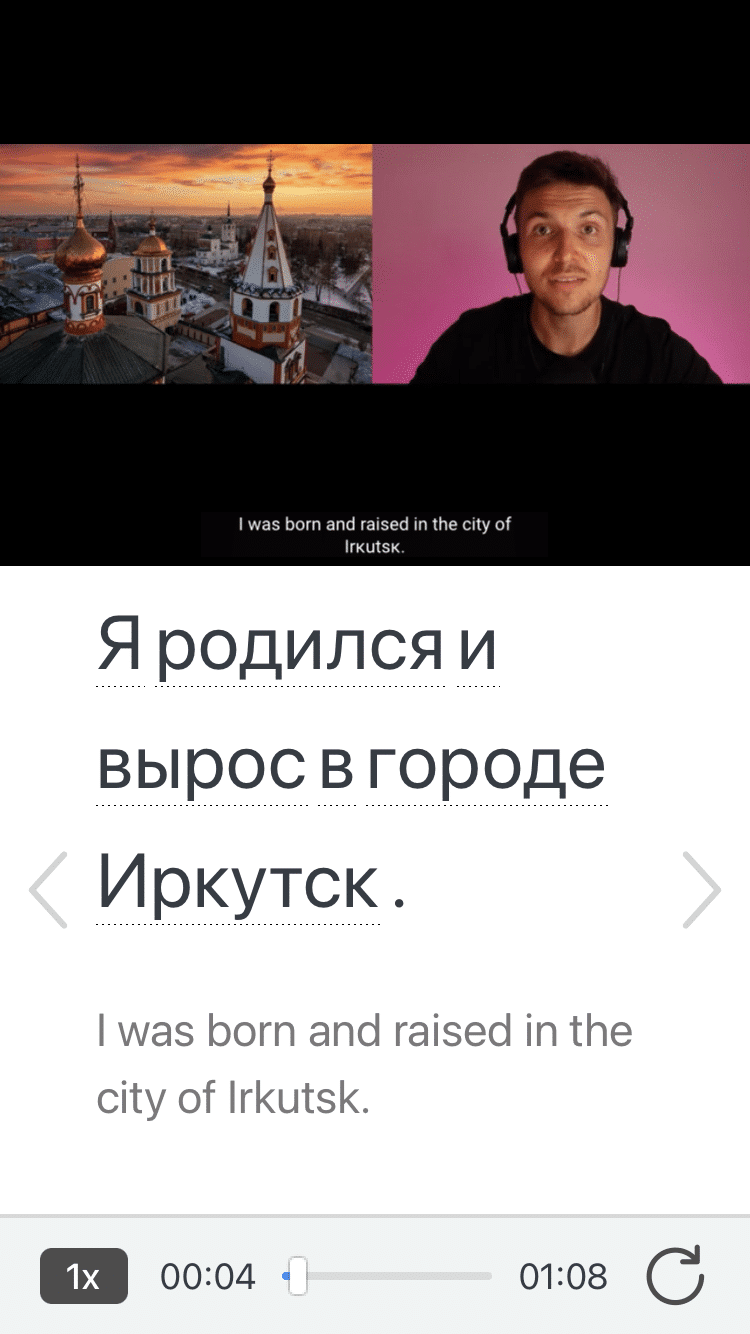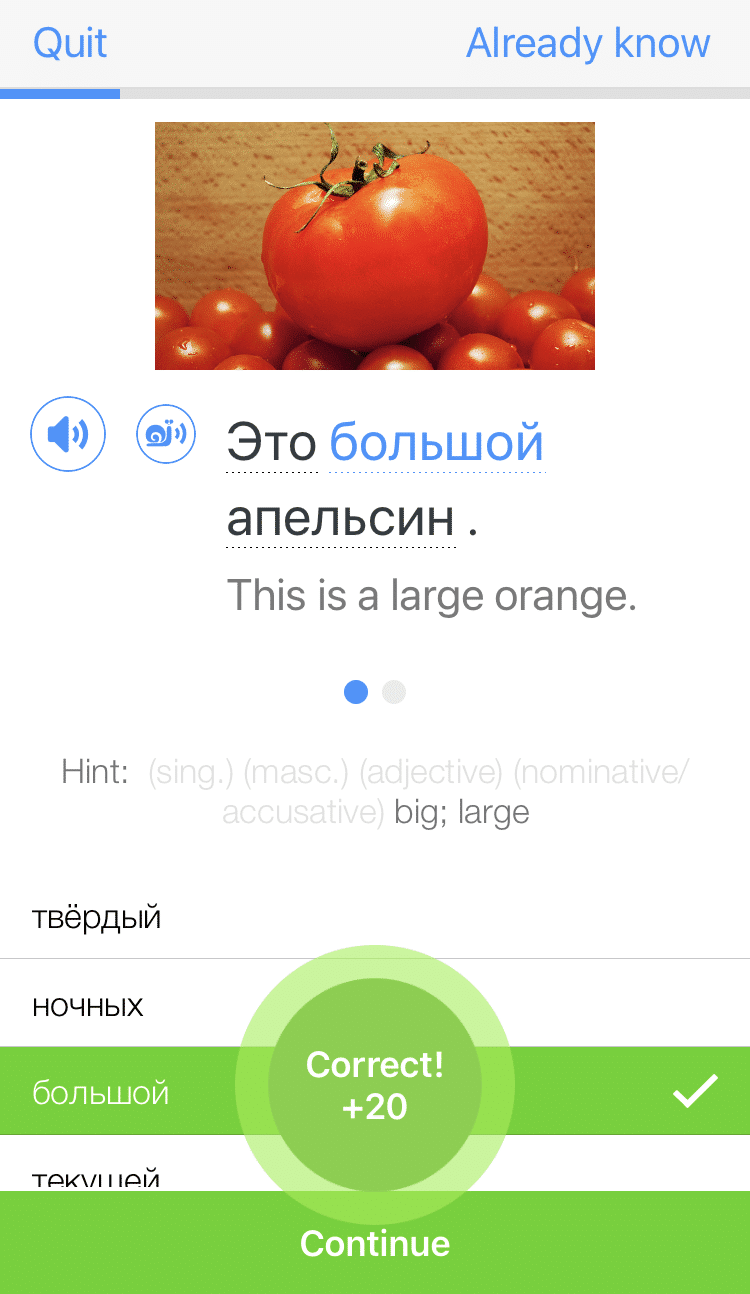
20 Typical Jokes in Russian
There are two main types of jokes in Russian: шутки (jokes), which are short and punchy, and анекдоты (anecdotes). The latter, as the name suggests, tell a story to amuse and entertain.
Russian jokes are quite often dark, frequently poke fun at political and historical elements of Russian culture and sometimes even feature named characters. Get some laughs in and learn a bit about Russian culture with these jokes 20 in Russian.
Contents
- Russian Jokes About Named Characters
- Political Jokes in Russian
- Satirical and Self-deprecating Russian Jokes
- And One More Thing...
Download: This blog post is available as a convenient and portable PDF that you can take anywhere. Click here to get a copy. (Download)
Russian Jokes About Named Characters
If you like your jokes with lore, you’re in luck: Russian jokes star several recurring characters. These have been around for years and some, as you’ll see, have aged better than others. That’s because these characters rely largely on stereotypes and caricatures to represent archetypes within Russian culture. Many are definitely not politically correct today, so use them with caution!
Chapaev and Petka
Vasily Ivanovich Chapaev was a real Russian soldier and commander who served for the Red Army in the Russian Civil War. Born a peasant, Chapaev joined the army and rose through the ranks until finally getting taken down by an ambush of the White Army (aka “the Whites”) on September 5, 1919.
He leaves behind a story that’s been told and retold many times over, portraying him as a hero. His portrayals in jokes are not as kind.
In the jokes, Chapaev and his sidekick Petka blunder through the war. The jokes often revolve around misunderstandings, absurd orders and Chapaev’s misguided attempts to teach Petka life lessons.
They also often feature them fighting the “Whites,” members of the monarchist White Army who fought against the Red Army. These jokes will give you a sense of the kind of shenanigans the two engage in:
Joke 1:
Сидят Петька и Василий Иванович на дереве. Вдруг к дереву подходит слон и начинает его трясти.
— Василий Иванович, может, здесь у него гнездо?
— Дурак ты, Петька, они в норах живут!
Petka and Vasily Ivanovich are sitting on a tree. Suddenly an elephant comes up to the tree and starts shaking it.
“Vasily Ivanovich, maybe he has a nest here?”
“You’re a fool, Petka, they live in holes!”
Joke 2:
Петя спрашивает у Василия Ивановича.
— Кто, по твоему мнению, дурак?
— Это тот, кто выражает себя таким образом, что другие не могут его понять. Понял?
— Нет…
Petka asks Vasily Ivanovich:
“What do you think is a fool?”
“It is a person who expresses himself in such a way that others cannot understand him. Understood?”
“No…”
Joke 3:
Сидят красные комиссары в штабе, обсуждают политику партии. Вдруг вбегает Петька.
— Василий Иваныч! Белые!
— Ага! Вон возьми в углу пару гранат и отгони их.
Петька берёт гранаты, выбегает. С улицы слышны взрывы. Петька возвращается.
— Ну что, отогнал белых?
— Отогнал!
— Ну а теперь положи гранаты на место.
Red commissars are sitting at headquarters, discussing party policy. Suddenly, Petka runs in.
“Vasily Ivanovich! Whites!”
“Ah! Take a couple of the grenades from that corner and drive them away.”
Petka takes the grenades and runs out. Explosions are heard from the street. Petka returns.
“Well, did you drive away the Whites?”
“I drove them away!”
“Good, now put the grenades back.”
Vovochka
Vovochka is a mischievous schoolboy known for his silly answers, nonsensical logic and misinterpretations of information. Jokes about Vovochka are similar to jokes about American characters like “Little Johnny” and poke fun at childhood innocence and misunderstandings… though they often use the innocent voice to tell some dirtier humor.
I’ve kept it clean for these examples, but you can still expect everything from dumb misunderstandings to dark humor (a theme in Russian jokes, as you’ll come to see before long!):
Joke 4:
— Пап, я приёмный?
— Вовочка, конечно нет! Ты серьёзно думаешь, что я бы выбрал тебя?
“Dad, am I adopted?”
“Vovochka, of course not! Do you seriously think that I would choose you?”
Joke 5:
Вовочка пришёл домой и рассказывает:
— Я наступил тёте на ногу, извинился, а она мне за это дала конфету.
— А ты что?
— Ещё раз наступил.
Vovochka came home and said:
“I stepped on my aunt’s foot, apologized, and she rewarded me with a candy.”
“And what did you do?”
“Stepped on it again.”
Joke 6:
— Вовочка, у тебя в кармане сто рублей, ты попросил у отца ещё сто, сколько у тебя будет?
— У меня будет сто рублей, Марья Ивановна.
— Ты плохо знаешь математику!
— А вы плохо знаете моего папу!
“Vovochka, you have in your pocket one hundred rubles. If you ask your father for another hundred, how much money will you have?”
“I’ll have a hundred rubles, Maria Ivanovna.”
“You don’t know math very well!”
“And you don’t know my dad very well!”
Chukcha
Chukcha is another common character in Russian jokes, based on the indigenous people of the Chukchi Peninsula in northeastern Russia. Chukcha jokes portray the people as primitive, simple-minded and lacking in modern sophistication. They often speak in broken Russian and use the word однако (however) frequently.
Be forewarned that these jokes rely on stereotypes and are nearly always not politically correct. While I’m presenting them here from a historical perspective, telling any of these today might not be received too favorably.
Joke 7:
Получил чукча посылку, распечатал, а там – зеркало…
Достал и говорит:
— О…, братан приехал!
Жена (беря в руки зеркало):
— И бабу с собой привёз! Вот страшилище-то…
Chukcha received a package, opened it, and there was a mirror…
He took it out and said:
“Oh, brother has arrived!”
Wife, picking up the mirror:
“And he brought his woman with him! Man, she’s ugly…”
Joke 8:
Чукча говорит геологу:
— Угадаешь сколько у меня оленей, обоих подарю!
— У тебя два оленя.
— Шаман, однако!
Chuchka says to the geologist:
“Guess how many deer I have, and I’ll give both to you!”
“You have two deer.”
“Witchcraft, however!”
Rabinovich
This character represents Jewish people in Russia and jokes about him play on Jewish stereotypes. Like the Chuchka jokes, it’s important to be aware that these jokes can be very insensitive. Here are some examples:
Joke 9:
Давным-давно, много лет назад, Рабинович очень сильно захотел выпить чего-нибудь крепкого.
Но была суббота, и поднятие стакана в такой день было объявлено в синагоге непозволительной работой. Так была изобретена знаменитая соломинка для коктейлей.
A long time ago, many years ago, Rabinovich really wanted to drink something strong.
But it was Saturday, and raising a glass on such a day was declared impermissible work in the synagogue. This is how the famous cocktail straw was invented.
Joke 10:
— Рабинович. Вы, таки, как говорят, прекратили все дела с Кацманом. Шо так?
— Послушайте. Выдавая замуж свою Софочку, Кацман вывалил на свадьбу миллион денег. Ви читали за статистику разводов? Я не хочу иметь дел с человеком, который вкладывает деньги с риском в 80%!!!
“Rabinovich. You, somehow, for some reason, stopped all your business with Katzman. How come?”
“Listen. Seeing his Sofochka get married, Katsman spent millions of dollars on the wedding. Have you read the divorce statistics? I don’t want to deal with a guy who invests money with a risk of 80%!!!”
Joke 11:
Рабинович пишет письмо в “Вечернюю Одессу”:
“Уважаемый редактор, если вы не перестанете публиковать в вашей газете анекдоты о скупых евреях, я перестану просить почитать вашу газету у своей соседки.”
Rabinovich writes a letter to the “Evening Odessa”:
“Dear editor, if you don’t stop publishing jokes about stingy Jews in your newspaper, I will stop asking my neighbor to borrow your newspaper.”
Political Jokes in Russian
Political humor in Russia has a long history, deeply embedded in the country’s culture. During the Soviet era, political satire often took the form of subtle jokes and anecdotes that provided a means for people to express dissent under a repressive regime. After the collapse of the Soviet Union, political humor became more diverse and outspoken, with comedians, satirical shows and internet memes playing significant roles in critiquing the government and societal issues.
Russian political humor often targets government officials, corruption, bureaucracy and societal norms. Satirical TV shows like «Куклы» (Puppets) gained popularity in the 1990s for their caricatures of political figures, including President Boris Yeltsin and later Vladimir Putin. Cartoonists and online communities continue to produce satirical content, poking fun at contemporary political events and personalities.
You may even find some of this satirical content on FluentU, since it uses authentic Russian videos to help teach you Russian.
FluentU takes authentic videos—like music videos, movie trailers, news and inspiring talks—and turns them into personalized language learning lessons. You can try FluentU for free for 2 weeks. Check out the website or download the iOS app or Android app. P.S. Click here to take advantage of our current sale! (Expires at the end of this month.)
Here’s a humorous response to a famous (real) slogan:
Joke 12:
— Ленин умер, но дело его живет!
— Какое совпадение: Брежнев умер, но тело его продолжает жить.
“Lenin has died, but his cause lives on!”
“What a coincidence: Brezhnev has died, but his body lives on.“
In fact, Brezhnev was often the butt of Russian political jokes. Here’s another:
Joke 13:
На открытии Олимпийских игр Брежнев достаёт текст приветственной речи и начинает читать по бумаге:
— О, О, О…
За спиной возникает перепуганный референт:
— Леонид Ильич, это олимпийские кольца, речь — ниже!
At the opening of the Olympic Games, Brezhnev takes out the text of his welcoming speech and begins to read from the paper:
“O, O, O…”
A frightened referent appears behind him:
“Leonid Ilyich, these are the Olympic rings. The speech begins lower!”
But Russians also jokes about their own oppression by the government:
Joke 14:
Вопрос: Как вы боретесь с мышами в Кремле?
Ответ: Повесить табличку «Колхоз». Тогда половина мышей умрёт от голода, а остальные разбегутся.
Q: How do you deal with mice in the Kremlin?
A: Put up a sign saying “collective farm.” Half the mice will starve, and the rest will run away.
And even about the Gulags (Russian labor camps):
Joke 15:
— Товарищ Сталин, а какое у вас хобби?
— Я люблю собирать анекдоты про себя.
— И много уже собрали?
— Два с половиной лагеря.
“Comrade Stalin, what is your hobby?”
“I like to collect jokes about myself.”
“Have you already collected a lot?”
“Two and a half camps.”
Sometimes, the joking took on a more tongue-in-cheek tone, like in the Radio Yerevan jokes. These jokes center around a fictional radio station known for purposefully misleading answers, like this one:
Joke 16:
Радио Еревана спросили: «Правда ли, что в СССР (по некоторым версиям, в России) существует свобода слова, как и в США?»
Ереванское радио ответило: «В принципе, да. В США вы можете стоять перед Белым домом и кричать: «Долой Рейгана!», и вас не накажут. Равно как вы можете стоять и на Красной площади в Москве и кричать: «Долой Рейгана!», и вы не будете наказаны».
Radio Yerevan was asked: “Is it true that there is freedom of speech in the USSR (in some versions, Russia), just like in the USA?”
Radio Yerevan answered: “In principle, yes. In the USA, you can stand in front of the White House and yell, “Down with Reagan!”, and you will not be punished. Equally, you can also stand in the Red Square in Moscow and yell, “Down with Reagan!”, and you will not be punished.”
Satirical and Self-deprecating Russian Jokes
While Russian jokes make fun of stereotypes, the government and practically everyone else, the sharp tongue of the Russian joke often turns on the joke’s teller. Plenty of Russian jokes are self-deprecating and poke fun at the culture itself.
A great example of this are the jokes about новые русские (new Russians), a newly wealthy class or Russians who emerged after the fall of the Soviet Union:
Joke 17:
Новый русский разбивает свою машину в жуткой автокатастрофе.
«О, мой Мерседес! О, о, мой бедный Мерседес!» он плачет.
Прохожий замечает, что у мужчины отсутствует рука.
«Твоя машина? И что!» он говорит. «Посмотри на свою руку!»
Богатый русский смотрит на то место, где раньше была его рука, а затем стонет: «Ох, мой Ролекс!»
A new Russian smashes his car in a terrible auto wreck.
“Oh, my Mercedes! Oh, oh, my poor Mercedes!” he cries.
A passer-by notices that the man’s arm is missing.
“Your car? So what!” he says. “Take a look at your arm!”
The rich Russian gazes at where his arm used to be, then moans, “Ohhhh, my Rolex!”
Here are a few other Russian jokes where the Russian culture is the punchline:
Joke 18:
A new holiday has appeared in Russia—“Sobriety Day.” The people, however, didn’t understand how to celebrate it.
Joke 19:
Россия—настолько большая страна, что когда в Москве 10:00, в Нижнем Тагиле все еще 1994 год.
Russia is such a big country that when it’s 10:00 in Moscow, it’s still 1994 in Nizhny Tagil.
Joke 20:
Американец, русскому:
— Я представляю, как вы обедаете: дубовый стол, на столе — бутылка водки, чёрный хлеб, селёдка, лук, каша, пельмени. Под столом — пулемёт. На стене — балалайка и будёновка. Во дворе — танк, а на крыльце — медведь.
Русский:
— Что за бред?! Почему одна бутылка водки?!
American to Russian:
“I can imagine how you have lunch: an oak table and on the table there is a bottle of vodka, black bread, herring, onions, porridge, dumplings. There’s a machine gun under the table. On the wall there is a balalaika and a budenovka. There’s a tank in the yard and a bear on the porch.”
Russian:
“What nonsense?! Why one only bottle of vodka?!”
Understanding humor in a different language can be a tough hurdle to clear. Jokes don’t always translate well and they often rely on an understanding of culture.
Hopefully understanding the Russian jokes in this post will help you take one step closer to fluency!
And One More Thing...
If you love learning Russian and want to immerse yourself with authentic materials from Russia, then I should also tell you more about FluentU.
FluentU naturally and gradually eases you into learning the Russian language and culture. You'll learn real Russian as it's spoken by real Russian people!
FluentU has a very broad range of contemporary videos. Just a quick look will give you an idea of the variety of Russian-language content available on FluentU:

FluentU makes these native Russian videos approachable through interactive transcripts. Tap on any word to look it up instantly.

Access a complete interactive transcript of every video under the Dialogue tab. Easily review words and phrases with audio under Vocab.

All definitions have multiple examples, and they're written for Russian learners like you. Tap to add words you'd like to review to a vocab list.
And FluentU has a learn mode which turns every video into a language learning lesson. You can always swipe left or right to see more examples.

The best part? FluentU keeps track of your vocabulary, and gives you extra practice with difficult words. It'll even remind you when it’s time to review what you’ve learned. You'll have a 100% personalized experience.
Start using the FluentU website on your computer or tablet or, better yet, download the FluentU app from the iTunes or Google Play store. Click here to take advantage of our current sale! (Expires at the end of this month.)



